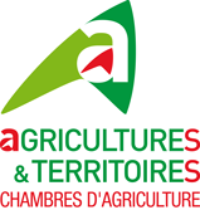Document type: news item from Ministry of Agriculture and Food Sovereignty
Authors: François Le Gall, Marie-Hélène Le Henaff
Preview: The CGAAER has been tasked with examining the conditions required to reconcile French society with livestock farming practices.
Issues : The public is increasingly concerned over the treatment of livestock and the impact of livestock farming on the environment and climate change, as well as on animal and human health. The gap between the general population and livestock farmers is constantly growing, despite the largely unsucessful attempts of the latter to respond to the public's concerns, while having to struggle with economic difficulties and the loss of appeal of a profession that is not sufficiently remunerated and whose services to the community are not recognized.
Methodology : The expertise is based on a literature review and over 50 interviews (with government departments, international organizations, researchers in the humanities and social sciences, INRAE, ANSES, farming unions, interprofessions, technical institutes, associations, CNA, etc.).
Summary: The expert opinion describes the actors and parameters involved in a situation over which there is growing controversy, and whose contributing factors can be divided into four main areas: socio-economics, the environment, health, and animal welfare, which can themselves be broken down into sub-headings. It soon becomes clear that there is no such thing as the "perfect" livestock farm, one that would provide "satisfaction" in all respects. Only compromise and the co-construction of a vision for the future will make possible the compromise that is required to secure a place for French livestock farming within sustainable food systems. Two prerequisites need to be met before a debate can be opened between all actors willing to work for this compromise:
- a clarification of the terms of the debate by the sciences, including the humanities, which could be entrusted to a multi-disciplinary and cross-disciplinary scientific committee;
- an inter-industry dialogue to enable professionals to better prepare for the debate and develop common messages that are accessible to the public. The Ministry can initiate this inclusive debate, and could usefully draw on the expertise of a trusted third party, such as the National Commission for Public Debate. Based on jointly-developed objectives, it would then be up to the Ministry to propose an action plan, the implementation of which could be monitored by a watchdog group, to be set up within the CNA. This group would also be tasked with monitoring both the conditions under which farming activities are carried out, and the status of public expectations. In addition, it is vital that dialogue between the sectors should continue to facilitate future transitions. In all scenarios, more even than communication, the provision of information needs to be improved: to the general public, to raise awareness of farming and livestock activities; to prospective farmers, to help them better understand society's aspirations; and to young people in general, to help them better understand the complexity of the living world.
France, with its new-found vision of livestock farming, will then be able to face with confidence the changes announced by the European Farm to Fork strategy for transition to sustainable food systems, and continue to promote sustainable livestock farming internationally.
CGAAER Report n°21100 - Future prospects for relations between livestock farming and society






